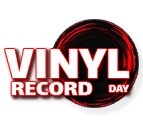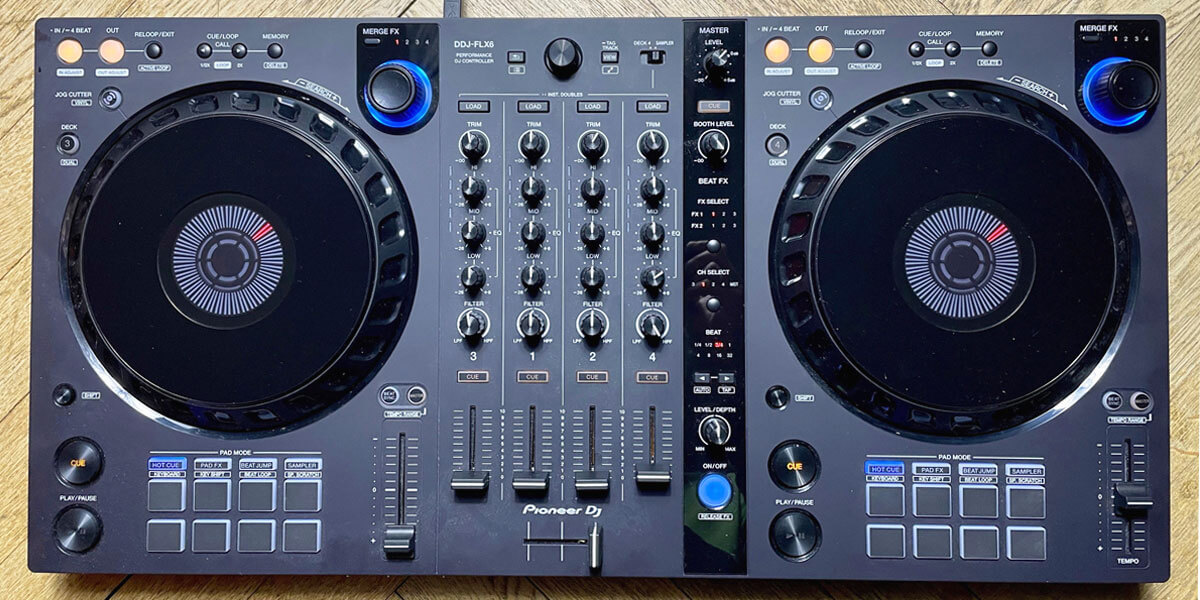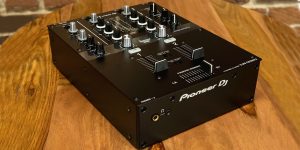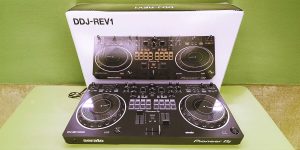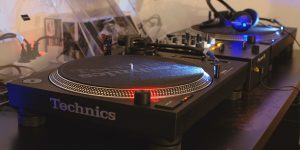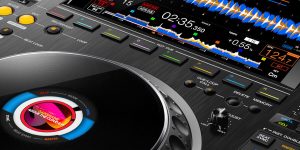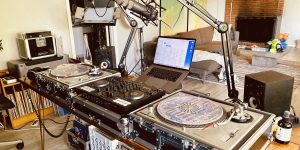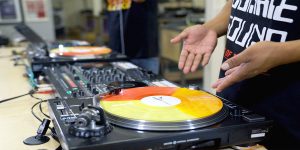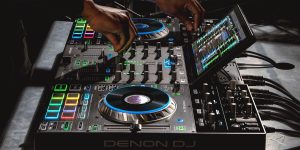As a seasoned DJ and a tech enthusiast, I’ve had my fair share of experiences with a myriad of special equipment over the years. But, if there’s one brand that continually stands out for me, it’s Pioneer. In my quest for the best Pioneer DJ controllers, I’ve sampled their range, experiencing firsthand what makes them the go-to choice for many professionals worldwide.
Pioneer DJ decks pack a punch, blending in the perfect concoction of innovation, reliability, and user-friendliness. Whether you’re a beginner aiming to make your mark on the music scene, or a seasoned pro in search of a reliable workhorse, there’s a Pioneer DJ controller tailored just for you.
In this article, we’ll journey through some of Pioneer’s top offerings, detailing why they rank among the top-notch in the market. We’ll also address some common queries you might have about these mix masters. Let’s get the ball rolling!
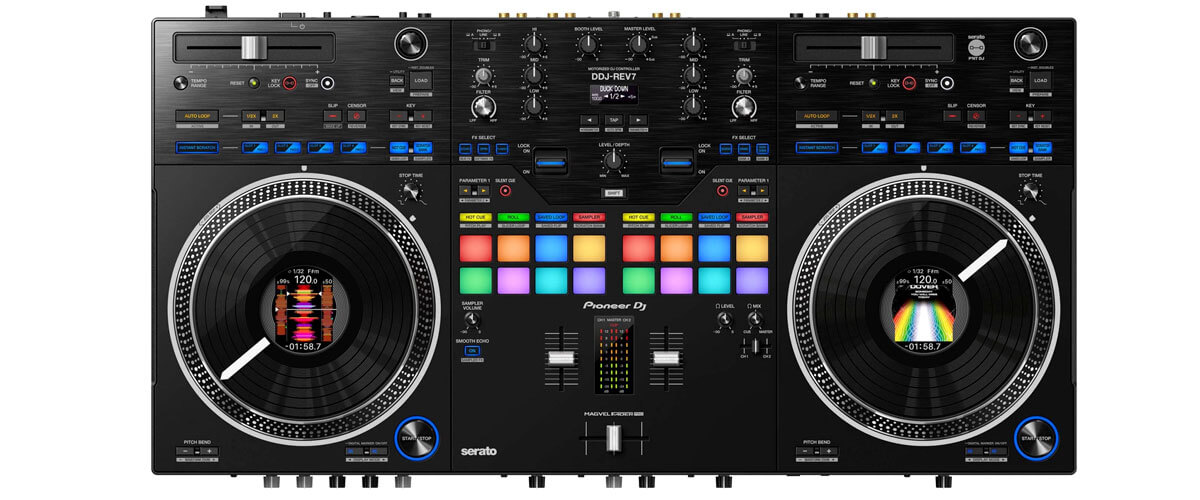
Pioneer DJ controllers comparison table
| Name | Audio | Inputs | Outputs | USB | Review |
|---|---|---|---|---|---|
| Pioneer DJ DDJ-REV7 best overall | 24-bit, 48kHz | 2 RCA stereo pair, 2 microphone (XLR & 1/4(6.35mm) TRS Jack, 1/4(6.35mm) TRS Jack), 1 AUX (RCA) | 1 RCA stereo pair, 1 XLR, 1 booth1/4(6.35mm) TRS, 1 headphone 1/4(6.35mm) TRS, 1 headphone 1/8(3.5mm) TRS | yes | Review |
| Pioneer DJ DDJ-REV1 budget | 24-bit, 48kHz | 1 microphone 1/4(6.35mm) TS | 1 RCA stereo pair, 1 headphone 1/8(3.5mm) TRS | yes | Review |
| Pioneer DJ DDJ-FLX6 under $1000 | 24-bit, 44.1kHz | 1 microphone 1/4(6.35mm) TRS | 1 RCA stereo pair, 1 booth1/4(6.35mm) TRS, 1 headphone 1/4(6.35mm) TRS, 1 headphone 1/8(3.5mm) TRS | yes | Review |
| Pioneer DJ XDJ-RX3 standalone option | 24-bit, 44.1kHz | 2 microphone 1/4(6.35mm) TRS, 2 line (RCA), 2 microphone (RCA), 1 stereo mini 1/8(3.5 mm), 1 AUX (RCA) | 1 RCA stereo pair, 1 XLR, 1 booth1/4(6.35mm) TRS, 1 headphone 1/4(6.35mm) TRS, 1 headphone 1/8(3.5mm) TRS | yes | Review |
Why choose Pioneer DJ controllers
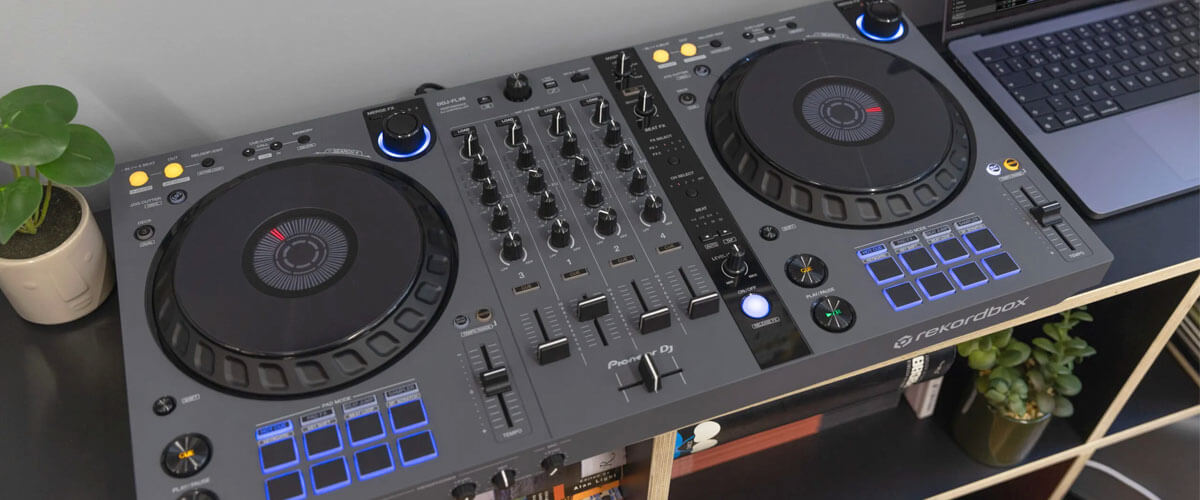
Diving into the world of DJ controllers can seem daunting, with an array of brands to choose from. However, Pioneer consistently rises to the top, and we’ll uncover why in the next section.
Reputation and reliability
Established in 1938, the Pioneer brand is no stranger to the DJing realm – it’s well-known for its stellar reputation and delivering top-notch, resilient equipment. Pioneer controllers are built to endure heavy usage while offering peak performance, making them a reliable companion for DJs who value quality and longevity. It’s no surprise Pioneer is a trusted name in the music industry.
Range of options
Pioneer stands out with an impressive selection tailored to a DJ at all career stages. For instance, a user-friendly DDJ-200 is a perfect launchpad for newcomers, while an advanced DDJ-1000 caters to the most seasoned professionals. This comprehensive range ensures that every DJ, irrespective of their expertise, can pinpoint a Pioneer controller aligned with their unique needs and skill level, demonstrating Pioneer’s commitment to versatility.
Integration with DJ software
One of my favorite traits of DJ controllers from Pioneer is their compatibility with major DJ software. These include not only Pioneer’s proprietary Rekordbox DJ software but also popular picks like Serato DJ and Traktor Pro. This versatility in integration allows DJs to operate the software they’re most familiar with, fostering a seamless DJing experience.
User-friendly design
When it comes to user-friendly design, Pioneer controllers take center stage. Mimicking the layout of traditional DJ setups, these devices ease the transition to a full CDJ or vinyl setup. The intuitive placement of buttons, knobs, and sliders on these DJ boards makes it simpler for beginners to master the basics while also aiding professionals in executing intricate sets.
Innovative features
Pioneer never falls short on the innovation front. Their DJ systems come equipped with a wealth of great technologies that really enhance my mix game. For instance, having built-in LCD screens on the jog wheels makes track navigation a whole lot easier. The performance pads are a game-changer for triggering samples and effects, while the advanced mixer sections give me the precision I need to take control of the music. It’s not just a controller – it’s Pioneer’s commitment to revolutionizing the DJ experience.
Community and support
Being a part of the Pioneer DJ family doesn’t just mean investing in top-tier equipment, it also means joining a vast, supportive community. The online realm is brimming with tutorials, tips, and advice from fellow Pioneer users – a wealth of knowledge at your fingertips. Beyond this, Pioneer’s customer support has always impressed me with their responsiveness and eagerness to help. When you choose this brand, you’re not just buying a product, you’re becoming part of a thriving, supportive network in the DJ world.
Best Pioneer DJ controller reviews
Pioneer DJ DDJ-REV7 – best overall

The DDJ-REV7 is Pioneer DJ’s flagship that sets the bar high with its innovative and practical features – from sturdy build to impressive specs, this model makes a compelling argument for its position as a top-tier choice.
The controller boasts 7-inch motorized jog wheels, a feature that provides the feel of real vinyl records. This not only brings a more tactile and immersive experience but also allows for an unprecedented level of control. For instance, adjusting the torque settings and using the included slip sheets helps DJs customize the friction, making it easier to manipulate the sound.
Another cool feature is the Instant Scratch. It gives quick access to four original scratch samples, allowing you to fire them off at any moment, enhancing the spontaneous feel of your mixes. The fact that these sounds are built-in and available without the need for a laptop connection means that you’ll always be ready to add a scratch effect to your set.
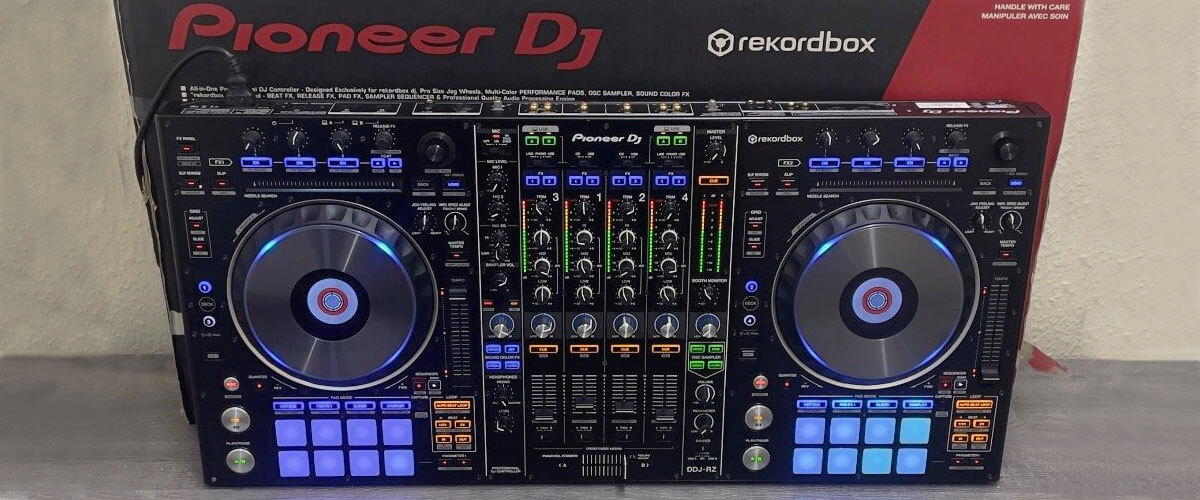
I also love the Magvel Fader Pro addition that delivers a robust and customizable experience for those who want to scratch with style and confidence. Coupled with the 22 built-in Beat FX, it provides endless opportunities for DJs to add drama and personality to their transitions. Furthermore, the On Jog Display lets you focus more on the controller rather than constantly switching your gaze between the decks and a laptop.
The DDJ-REV7 isn’t just about functionality, though. Its sophisticated design, characterized by a contrasting matte and hairline finish, gives it an edge in aesthetics. It’s a device that looks as good as it performs.
Pioneer DJ DDJ-REV7 is a well-rounded DJ controller that combines functionality, design, innovation, and reasonable price. It provides a comprehensive toolkit for any DJ seeking to level up their performance, making it the overall best Pioneer DJ controller on today’s market. With the DDJ-REV7, you’re not just playing music, you’re creating an experience!
Key specs
- Audio: 24-bit, 48kHz.
- Inputs: 2 RCA stereo pair, 2 microphone (XLR & 1/4(6.35mm) TRS Jack, 1/4(6.35mm) TRS Jack), 1 AUX (RCA).
- Outputs: 1 RCA stereo pair, 1 XLR, 1 booth1/4(6.35mm) TRS, 1 headphone 1/4(6.35mm) TRS, 1 headphone 1/8(3.5mm) TRS.
- USB: yes.
- Weight, lbs/kg: 23.6/10.7.
- Mac system requirements: macOS Ventura 13(Intel® Core™ Processor / Apple M1, M1 Pro, M1 Max, M2 chip), macOS Monterey 12(Intel® Core™ Processor / Apple M1, M1 Pro, M1 Max, M2 chip), macOS Big Sur 11(Intel® Core™ Processor / Apple M1 chip).
- PC system requirements: Windows 10, 11(latest service pack).
Pros
- Feels professional.
- A high degree of control and customization.
- The motorized jog wheel would appeal to traditionalists who love the feel of viny.
- Sensitive keys.
Cons
- The unit is quite heavy.
- The steep learning curve for completely novice users.
Pioneer DJ DDJ-REV1 – budget
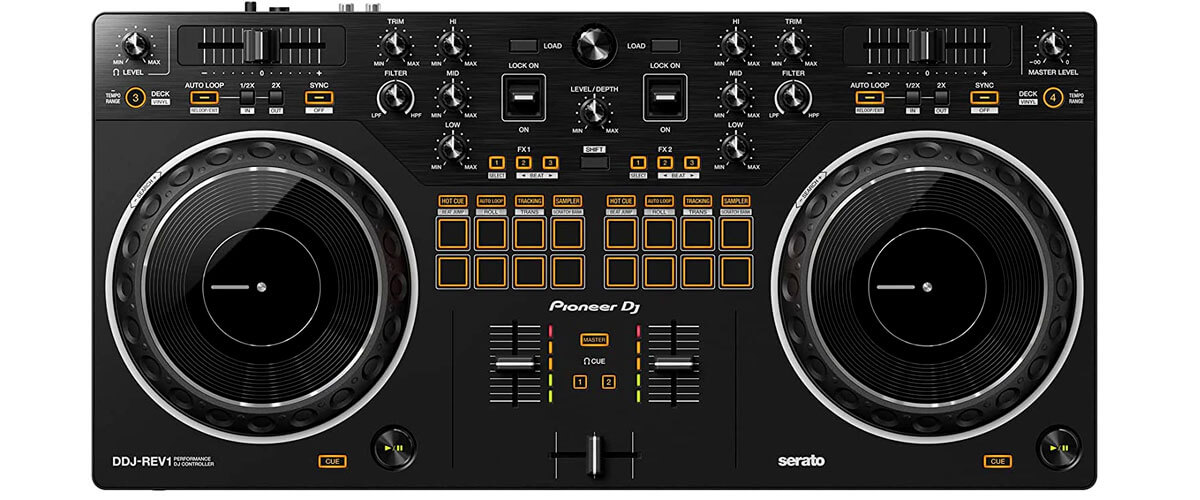
Pioneer DJ DDJ-REV1 is a budget-friendly dynamo that punches way above its weight. As the newest Pioneer DJ controller, it’s crafted specifically for Serato DJ Lite. Thanks to its design, it makes you feel like you’re manning a pro battle DJ’s station, emulating a professional DJM-S mixer and PLX turntable setup.
This 2-channel controller is fitted with a spanking new battle-style layout, giving you an extra dose of authenticity while you create mind-bending mixes. With larger jog wheels akin to the revered DDJ-SR2, your scratching experience gets the finesse it deserves. Lever FX is another standout that makes adding texture to your music effortless.
I can’t forget about the extended 60mm tempo sliders for fine control and intuitively placed Performance Pads. A bonus? The Tracking Scratch feature. This DJ-friendly assistant can make your scratching performance smoother, allowing you to focus on audience engagement without missing a beat.
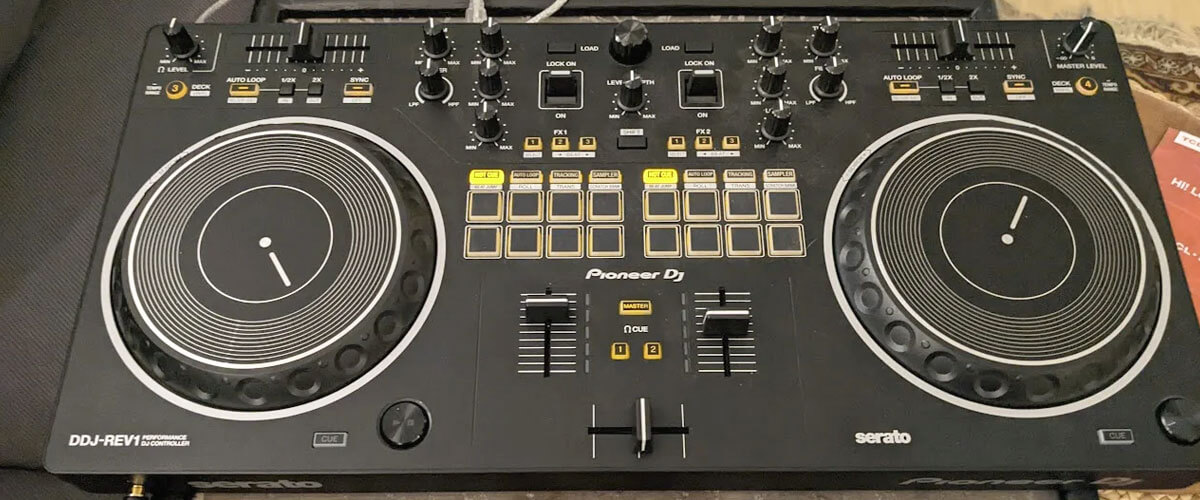
The DDJ-REV1 can incorporate voice and vocal tracks seamlessly into streaming, allowing master audio to mix with your microphone input. This feature is quite a novelty for Pioneer DJ controllers at this level. You don’t need extra equipment like a separate mixer or sound card, which is a significant advantage for DJs on a budget.
The console also boasts 4-deck control, giving you the freedom to play tracks loaded onto any of the 4 decks in Serato DJ Lite. Although it might require some time to get the hang of it, the flexibility this feature provides is undeniably rewarding.
So, if you’re stepping into the DJ world or just on the hunt for an affordable yet feature-packed device, the DDJ-REV1 could be the best Pioneer controller for you. It is a compelling example of how this brand continues democratizing the world of DJing, crafting top-tier experiences within a reasonable price bracket.
Key specs
- Audio: 24-bit, 48kHz.
- Inputs: 1 microphone 1/4(6.35mm) TS.
- Outputs: 1 RCA stereo pair, 1 headphone 1/8(3.5mm) TRS.
- USB: yes.
- Weight, lbs/kg: 4/2.1.
- Mac system requirements: Mac OS X 10.12 Sierra, Mac OS X 10.13 High Sierra, Intel® Core i3/1.07 GHz, RAM 4GB.
- PC system requirements: Windows 7 SP1, Intel® Core i3/1.07 GHz, RAM 4GB.
Pros
- Comprehensive deck and control options.
- Reliable and durable build quality, featuring a mix of thick, high-quality plastic and brushed aluminum.
- Great value for money considering its features and quality.
Cons
- Designed specifically for Serato DJ Lite, there may be limitations for users who prefer different software.
- Pitch faders are small, which might make it hard to be exact with the BPM in a timely manner.
- The unit may be a bit small for some users.
Pioneer DJ DDJ-FLX6 – under $1000
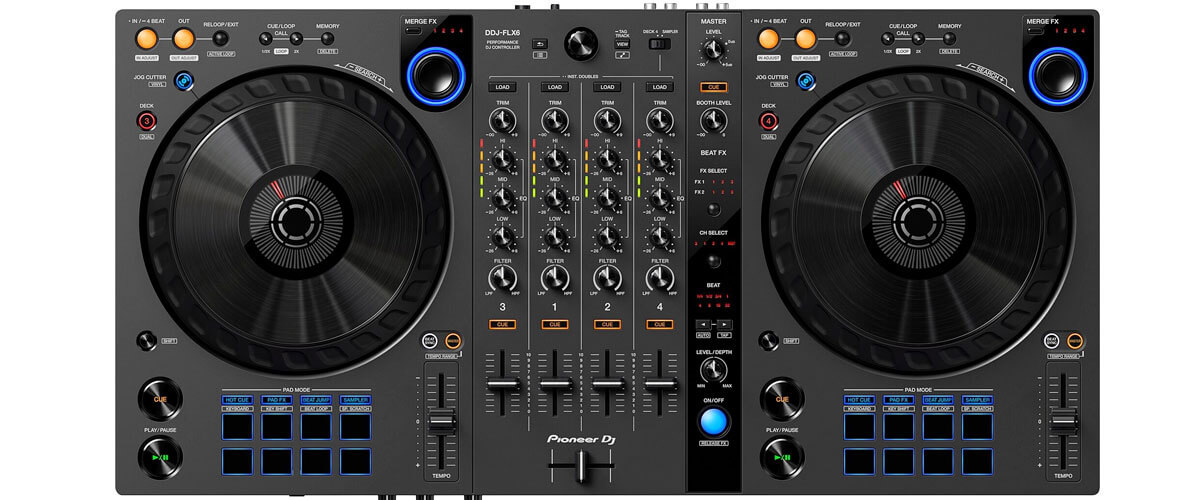
Taking the deck with Pioneer’s DDJ-FLX6 felt like stepping into the DJ booth of the future. This compact yet powerful controller is a groundbreaker in many ways, delivering fantastic performance for any DJ seeking to elevate their craft.
The DDJ-FLX6’s Merge FX feature is its crowning glory. Whether you’re transitioning from hip-hop to house or country to techno, this tool enables smooth, creative genre-blending like never before. However, novices might initially find the wide array of options slightly overwhelming. Don’t worry, though – with a little patience and practice, you’ll soon be spinning out mixes with ease.
The Jog Cutter is another trait that caught my attention, allowing DJs to create professional-grade scratch effects with a simple turn of the jog wheel. No need for years of scratch practice! It’s worth noting that seasoned scratch DJs might find it a tad simplistic. Nevertheless, it’s an excellent tool for those looking to add flair without the learning curve.
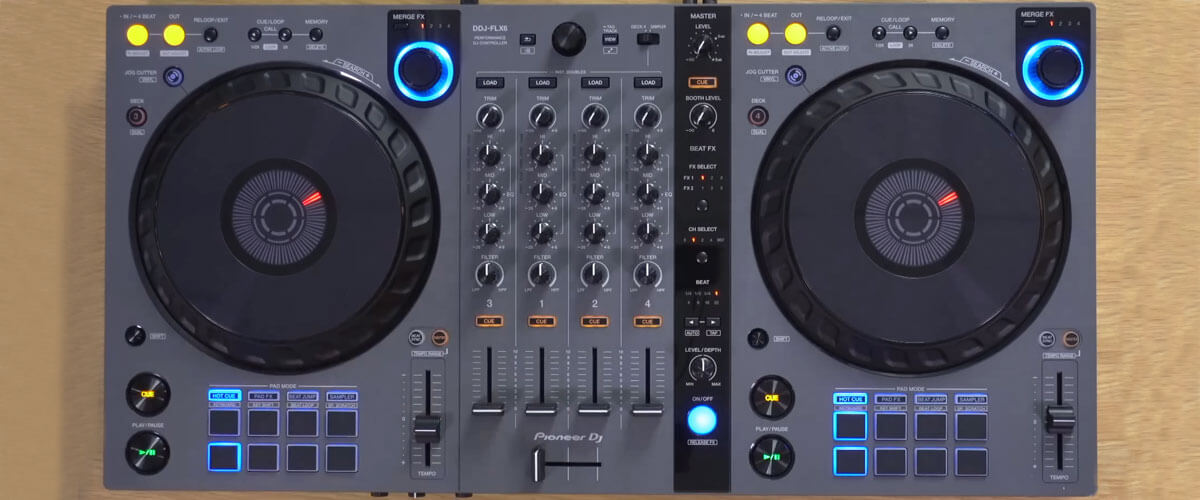
Setting up the DDJ-FLX6 is incredibly straightforward. It pairs with software like Rekordbox and Serato DJ Pro, providing a smooth, uninterrupted DJing experience. However, it doesn’t have standalone mixer capabilities, which could be seen as a minor setback. Despite this, if you typically incorporate a laptop into your DJ setup, you can rest assured that the DDJ-FLX6 won’t skip a beat.
The built-in sound card and USB bus power make for a plug-and-play experience that’s as smooth as the FLX6’s faders. On the other hand, the absence of XLR outputs might limit sound quality in larger venues, so using a separate audio interface might help in such situations.
The Pioneer DJ DDJ-FLX6 opens up a world of creative possibilities, proving that you don’t have to sacrifice innovation for affordability. If you’re a club DJ ready to blend boundaries and break the mold, this might just be your perfect match.
Key specs
- Audio: 24-bit, 44.1kHz.
- Inputs: 1 microphone 1/4(6.35mm) TRS.
- Outputs: 1 RCA stereo pair, 1 booth1/4(6.35mm) TRS, 1 headphone 1/4(6.35mm) TRS, 1 headphone 1/8(3.5mm) TRS.
- USB: yes.
- Weight, lbs/kg: 8.4/3.8.
- Mac system requirements: Mac OS 11 Big Sur, Mac OS 12 Monterey, Mac OS 13 Ventura, Intel core i5 or Apple M1/M2 or higher, RAM 8GB, HDD 15GB
- PC system requirements: Windows 10, 11, 6th generation Intel core i5 or AMD Ryzen 5 3000 series or higher, RAM 8GB, HDD 15GB.
Pros
- The layout is similar to professional/club Pioneer controllers, which eases the transition from other Pioneer models.
- Innovative features such as the Merge FX knob for transitions and adding multiple effects, and Jog Cutter mode for simulated scratching.
- Option to switch Deck 4 to a sampler.
- Smooth, responsive jog wheels.
- Makes beat matching easy.
Cons
- Primarily made of plastic, which might impact durability.
- No reverse crossfader switch on the controller.
- Lacks inputs.
Pioneer DJ XDJ-RX3 – standalone option
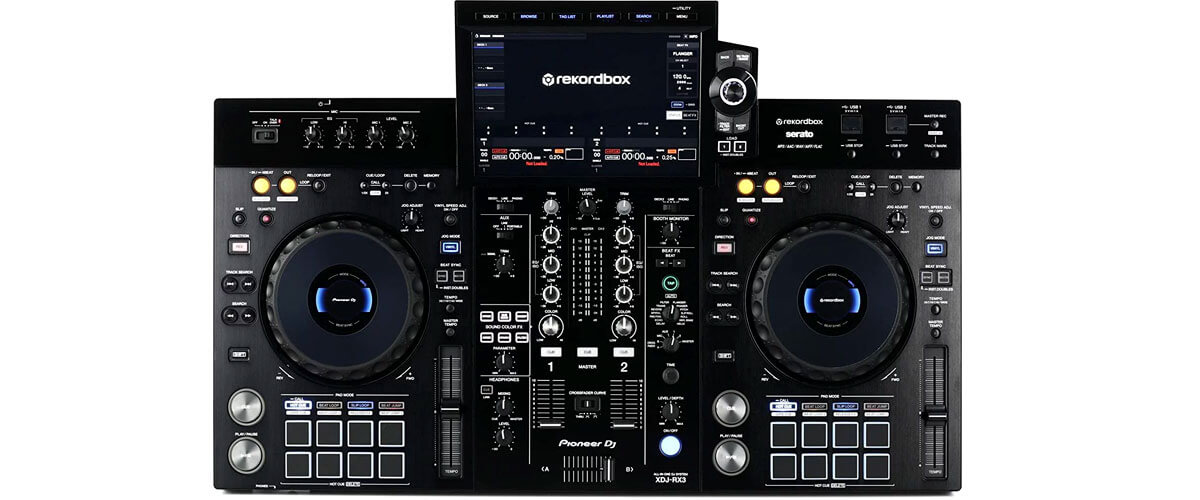
Pioneer DJ XDJ-RX3 standalone system doesn’t merely promise pro-grade performance – it delivers it in every sense of the word.
Right off the bat, this model grabs your attention with its sizeable 10.1″ touchscreen display. In the heat of a lively DJ set, easily selecting your tracks and precisely controlling your mix becomes a blessing, and this vivid, responsive screen facilitates just that. Picture yourself in the middle of a climactic mix – with a quick glance and swipe on the display, you’re smoothly transitioning into the next killer track.
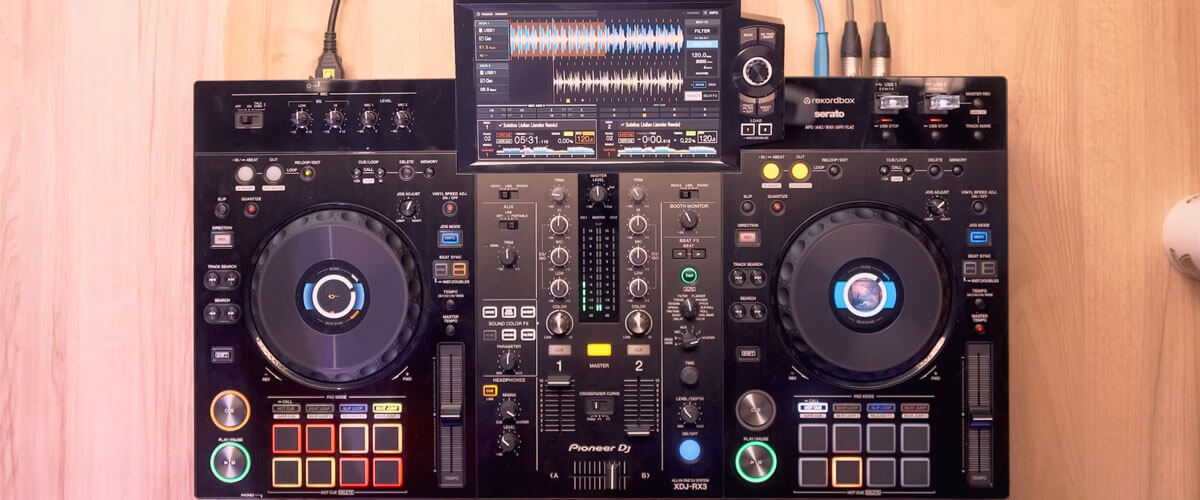
This professional DJ controller is not just about visuals, though. It offers compatibility with both Rekordbox and Serato DJ Pro. You’ll be able to craft your mixes with the intuitive interface of Rekordbox or flip to the ever-popular, feature-rich environment of Serato DJ Pro, depending on your mood or the requirements of the gig. The XDJ-RX3 also successfully incorporates Nexus performance options, granting you club-standard controls and effects at your fingertips.
Not to forget the 16 performance pads that open up a universe of creativity. Think of triggering hot cues, slicing beats, or even throwing in a quick sampled soundbite, all seamlessly integrated into your set. Plus, onboard effects and USB ports expand your potential for manipulating your tracks and integrating with your existing setup.
In the fast-paced world of DJing, Pioneer DJ XDJ-RX3 stands tall as a standalone titan. Shed the shackles of a laptop and embrace the freedom of uncluttered, on-the-fly performances! Whether hitting the road or spinning at your local venue, this equipment is your ticket to a more spontaneous, engaging, and electrifying DJ experience. Make the leap, step up your game, and let your creativity run wild.
Key specs
- Audio: 24-bit, 44.1kHz.
- Inputs: 2 microphone 1/4(6.35mm) TRS, 2 line (RCA), 2 microphone (RCA), 1 stereo mini 1/8(3.5 mm), 1 AUX (RCA).
- Outputs: 1 RCA stereo pair, 1 XLR, 1 booth1/4(6.35mm) TRS, 1 headphone 1/4(6.35mm) TRS, 1 headphone 1/8(3.5mm) TRS.
- USB: yes.
- Weight, lbs/kg: 20.5/9.3.
- Mac system requirements: macOS Ventura 13(Intel® Core™ Processor / Apple M1, M1 Pro, M1 Max, M2 chip), macOS Monterey 12(Intel® Core™ Processor / Apple M1, M1 Pro, M1 Max, M2 chip), macOS Big Sur 11(Intel® Core™ Processor / Apple M1 chip).
- PC system requirements: Windows 10, 11(latest service pack).
Pros
- Smooth transition from vinyl to digital setups.
- More portable compared to other models, making it more suitable for gigs.
- Large, responsive 10-inch touchscreen.
- High-build quality with substantial knobs and sliders.
- You can connect up to 4 decks.
Cons
- The crossfader is shorter than some users would like.
Pioneer DDJ-FLX10
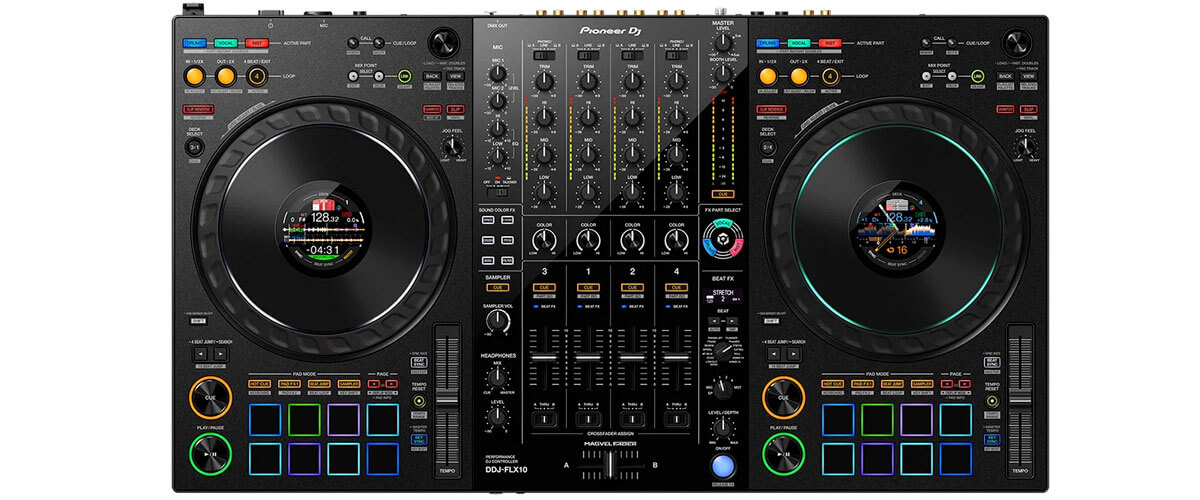
Exploring the world of DJ controllers brings us to the Pioneer DDJ-FLX10, an exciting entry that blends reliable functionality with innovative features to spice up your mix.
One of the first things you’ll notice about the DDJ-FLX10 is its pair of sizeable 8″ jog wheels. Precision matters, especially when you’re nailing those beat matches or performing a quick scratch during a high-energy set.
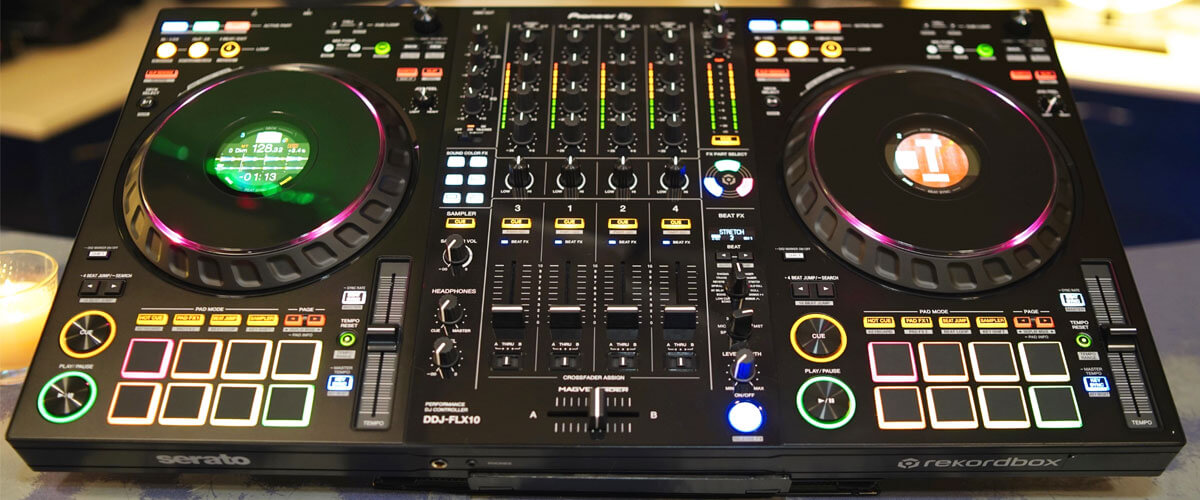
A big selling point for the DDJ-FLX10 is its Rekordbox lighting mode. Picture this – your beats pulsing not just through the speakers but across the room as synchronized lights, turning your set into a truly immersive audio-visual spectacle. This feature might be a game-changer for mobile DJs looking to offer something extra at their gigs.
The DDJ-FLX10’s compatibility with the widely-used Serato DJ software ensures you’ll feel right at home mixing tracks. Moreover, the 16 performance pads packed into this deck open up a whole realm of real-time creativity. Whether layering rhythmic drum patterns, triggering one-shot samples, or just setting cue points, these pads offer an interactive, hands-on mixing experience.
Bringing it all home, the Pioneer DDJ-FLX10, with its 4-deck capability, invites DJs to an exhilarating world of multi-track mixing. This isn’t just another DJ controller – it’s a command center for those who dare to weave complex sonic tapestries. Stand out, be bold, and orchestrate the unforgettable with this model.
Key specs
- Audio: 24-bit, 44.1kHz.
- Inputs: 1 microphone 1/4(6.35mm) TRS, 2 line (RCA), 2 microphone (RCA), 1 XLR.
- Outputs: 1 RCA stereo pair, 1 XLR, 1 booth1/4(6.35mm) TRS, 1 headphone 1/4(6.35mm) TRS, 1 headphone 1/8(3.5mm) TRS.
- USB: yes.
- Weight, lbs/kg: 14.7/6.7.
- Mac system requirements: macOS Big Sur 11 (Intel® Core™ Processor / Apple M1 chip), macOS Monterey 12 (Intel® Core™ Processor / Apple M1, M1 Pro, M1 Max, M2 chip), macOS Ventura 13 (Intel® Core™ Processor / Apple M1, M1 Pro, M1 Max, M2 chip) .
- PC system requirements: Windows 10, 11(latest service pack).
Pros
- Large jog wheels enhance the precision of track cueing, beat matching, and scratching.
- Rekordbox lighting mode – great for those who want to synchronize their lights to their set, creating a full audio-visual performance.
- Hugely versatile with 16 performance pads.
- Track separation – handy for DJs who like to break down their tracks and manipulate different elements separately.
Cons
- The pads aren’t labeled correctly for Serato.
